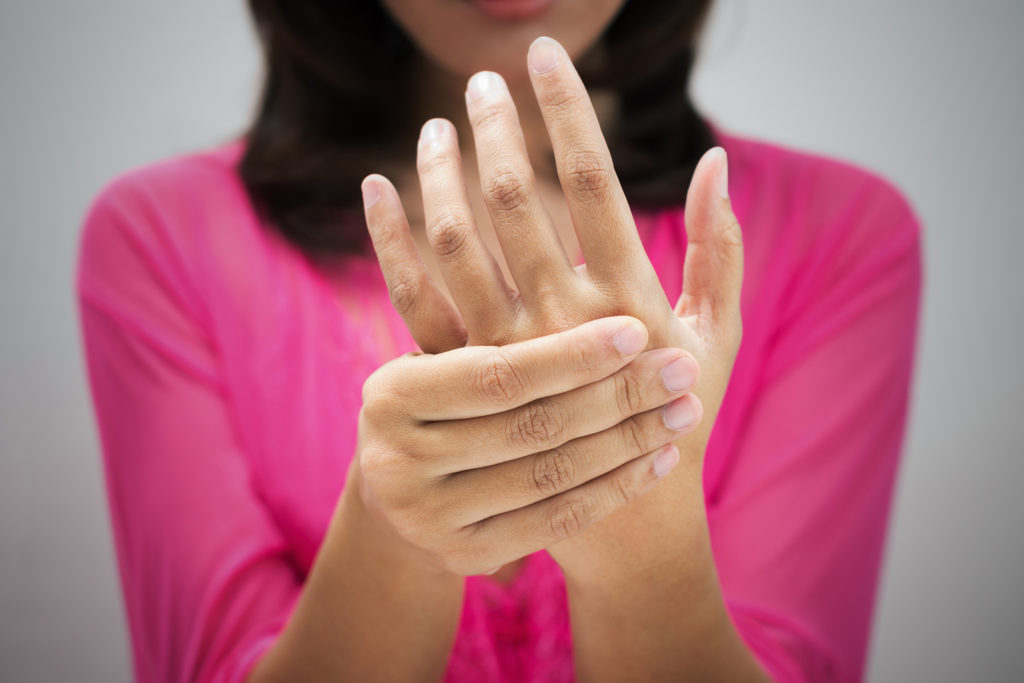What Is Paresthesia?

Paresthesia, have you heard of it?
It’s also referred to as tingling extremities, which, while it’s not one of the more common signs of peri and post- menopause can deliver testing times.
So, just what is it?
Well, you know how sometimes your leg goes to sleep if you’re sitting the wrong way? It goes numb and then when you stretch it out you get ‘pins and needles’ as it gets back into action?
That numb, prickly, tingly feeling is medically known as paresthesis or paresthesia.
In some people, it can also present as a feeling of burning or a short electric shock.
Why is paresthesia a sign of peri/menopause?
As we often share, the signs of peri/menopause are due to the fluctuations of hormones as our fertility comes to an end. Some of the signs also carry on post-menopause due to the reduction of the reproductive hormones. In both of these scenarios estrogen is one of the primary hormones involved.
Estrogen affects many areas of the body and in the case of paresthesia, it’s the nervous system that’s affected, which is why it reacts with the tingling and numbness.
What can I expect from paresthesia?
The tingling extremities of paresthesia can come on at any time but it usually occurs at night. It may affect any part of the body but most commonly it’s the arms, hands, legs and feet.
What can you do?
Luckily there are some simple things you can do to help. You can cherry pick to suit or try them all (it’s only going to help!)
- Try and minimise anxiety and stress because these play havoc with the nervous system.
- Fish oil/flaxseed oil is also helpful.
- Magnesium is a good tool (for sleep as well).
- Take Epsom salts baths as they deliver a magnesium boost.
- It’s important to keep an eye on your B12 levels during peri and post-menopause as they can become low.
- Keep the rest of your B vitamins at optimum levels too.
- All of the B’s including B12 are important aids for a healthy nervous system.
If you need any other help or have any questions please don’t hesitate to reach out.
Disclaimer: This article should never take the place of medical advice. If you are experiencing ongoing paresthesia, numbness or tingling please see your GP.






